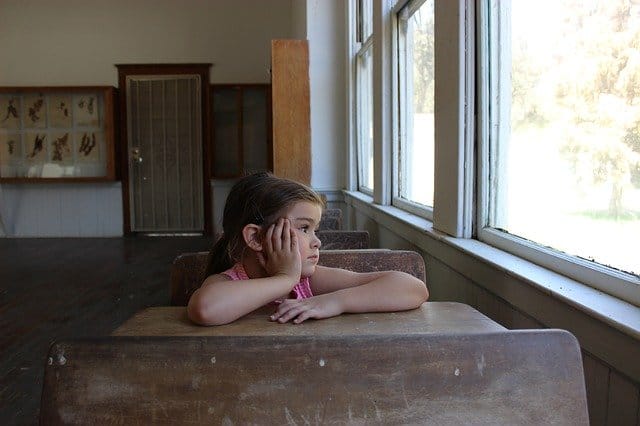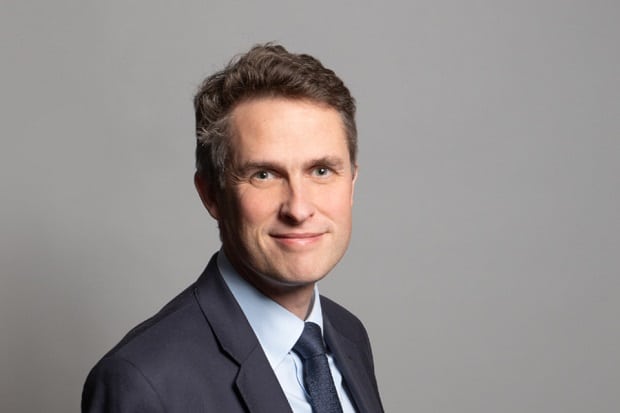
The decision to reopen schools to some pupils on June 1 has been branded “an unnecessary risk” by a teacher and a registered nurse in Thanet.
Candy Gregory and Pauline Farrance, who are both Labour district councillors, said: “This seemingly arbitrary date set by the government to take back reception, year 1 and year 6 pupils poses an unnecessary risk to teachers, pupils and the wider community.”
Candy Gregory, who has been a registered nurse for over 40 years, and Pauline Farrance, whose teaching career spans nearly 40 years in a range of educational settings, both support the reservations expressed by the National Education Union (NEU) and the British Medical Association about the phased reopening.
The proposal was confirmed as “still being on track” by Prime Minister Boris Johnson on May 24.
Primary schools will be open for children in Reception, Year 1 and Year 6, while nurseries and other early years providers will begin welcoming back children of all ages.
Secondary schools, sixth forms and colleges will also provide face-to-face contact for Year 10, Year 12 and equivalent 16-19 further education students to help them prepare for exams next year. It is expected this will begin from June 15, with around a quarter of these secondary students in at any point.

A final decision will be made tomorrow (May 28) based on meeting the government’s five tests of:
- Protect the NHS’s ability to cope. We must be confident that we are able to provide sufficient critical care and specialist treatment right across the UK
- See a sustained and consistent fall in the daily death rates from COVID-19 so we are confident that we have moved beyond the peak
- Reliable data from SAGE showing that the rate of infection is decreasing to manageable levels across the board
- Be confident that the range of operational challenges, including testing capacity and PPE, are in hand, with supply able to meet future demand
- Be confident that any adjustments to the current measures will not risk a second peak of infections that overwhelms the NHS
Measures to protect children and staff will include:
- reducing the size of classes and keeping children in small groups without mixing with others
- staggered break and lunch times, as well as drop offs and pickups
- increasing the frequency of cleaning, reducing the used of shared items and utilising outdoor space
- All children and staff, and their families, will also have access to testing if they display symptoms.
- Children will also be encouraged not to travel on public transport where possible, in line with the advice to the wider population.
However, Cllrs Farrance and Gregory say recommendations made by the Scientific Advisory Group for Emergencies (SAGE) and the National Education Union should be followed.
The NEU has stated its own five tests before schools reopen as:
Test 1 : The new case count must be much lower than it is now, with a sustained downward trend and confidence that new cases are known and counted promptly. And the Government must have extensive arrangements for testing and contact tracing to keep it that way.
Test 2 : The Government must have a national plan including parameters for both appropriate physical distancing and levels of social mixing in schools, as well as for appropriate PPE, which will be locally negotiated at school-by-school and local authority level.
Test 3 : Comprehensive access to regular testing for children and staff to ensure schools and colleges don’t become hot spots for Covid-19.
Test 4 : Protocols to be put in place to test a whole school or college when a case occurs and for isolation to be strictly followed.
Test 5 : Vulnerable staff, and staff who live with vulnerable people, must work from home, fulfilling their professional duties to the extent that is possible. Plans must be specifically address the protection of vulnerable parents, grandparents and carers.
Delay to reduce risk?
Sir David King, the former government adviser who chairs the “Independent Sage” group of scientists, has said that “by going ahead with this dangerous decision, the government is further risking the health of our communities and the likelihood of a second spike.”
An interim report from Sage suggests delaying the reopening of schools until June 15 “approximately halves the risk to children”, and that delaying until September would be “less risky still”.

Cllr Gregory said: “We have heard from scientists independent of the government that now is not the time to bring youngsters into a closed and uncontrollable environment during an on-going pandemic.
“Small children have no concept of social distancing or hygiene measures. There is a huge risk that they will unknowingly spread any virus particles amongst their peer group, on to teaching staff and on to the community.
“Maybe the Prime Minister isn’t aware of how crowded most state schools are. The teacher pupil ratio in a state school is 1:33 while the school he would have attended would have been more like 1:8!
“Most of all there has to be comprehensive access to regular testing for children and staff to ensure our schools and other educational establishments don’t become hot spots for Covid-19.”
The councillors support the SAGE call for a localised approach to easing lockdown rather than a blanket one for the whole country. They say the situation should be monitored in each area, and an assessment of safety be made at local level.
Cllr Farrance said: “Schools have been open during the pandemic for the children of key workers and those more vulnerable, so teachers have shown themselves ready to work to help fight this crisis. It’s a question of the degree of risk and whether it’s really sensible to take it.
“An assessment of the safety of Thanet schools should take into account the risk posed by the multiple factors of deprivation here. So Thanet would be at greater risk than other parts of Kent and other parts of the country. It is critical we consider these issues before bringing more pupils back into schools.”

Education Secretary Gavin Williamson said: “Our priority is the education and welfare of all children and young people across the country. That is why we want to start a phased wider opening of nurseries, school and colleges is informed by the best possible scientific and medical advice.
“We will continue to work with the sector to support them to prepare for wider opening and ensure all children and young people can continue to receive the best care, education and training possible.”
Measures are being put in place in Thanet schools.
Newington’s plan includes:
- Children will be taught in classes of no more than 15, with a teacher and teaching assistant. Who staff members are will depend on availability
- Children in class will be taught in isolation throughout the day and will not meet adults or children from other classes
- Children will be taught about social distancing, although the younger the child the less likely they are to adhere to it
- All children and adults will be temperature checked at the start of each day. Any child showing symptoms will be sent home and cannot return until they have been tested for the virus.
- No visitors to the school unless invited by the leadership team
- Lunch provided for every child to be eaten in class, or the dining hall or outside
- Clear routines and guidelines for entering and leaving school
- No out of hours clubs
- Key worker children will continue to be accommodated
Plans for St George’s CofE, Broadstairs, include:
- There will be no rapid move to meet all the Government targets for return over the coming weeks and decisions will be based on the school’s individual situation.
• St George’s will only be starting with Year R at a time when Mr Mirams feels it is right to do so.
• It will be impossible to social distance Year R and the day will be clearly staggered and shorter.
• Arrival and departure from the site will be staggered with a shorter school day.
• There will be no more than 10 per class and there will only be two Year R classrooms.
• Children will be expected to wear school uniform and bring a packed lunch.
• All break times will be staggered but social distancing will not be possible with 4-5 year olds.
• The school will have to review Key Worker and vulnerable children provision once capacity increases as it is unlikely that they can accommodate large numbers.
• The school will wait to see if they can safely provide provision for Year R before increasing to other years.
• One to one support will not be possible and specialist staff will be limited.
• In regard to Secondary, the school will be looking at Year 10 plans for the coming term but it is unlikely that they will have them in at present.
Parents who do not send their children back to school on June 1 will not be sanctioned.

